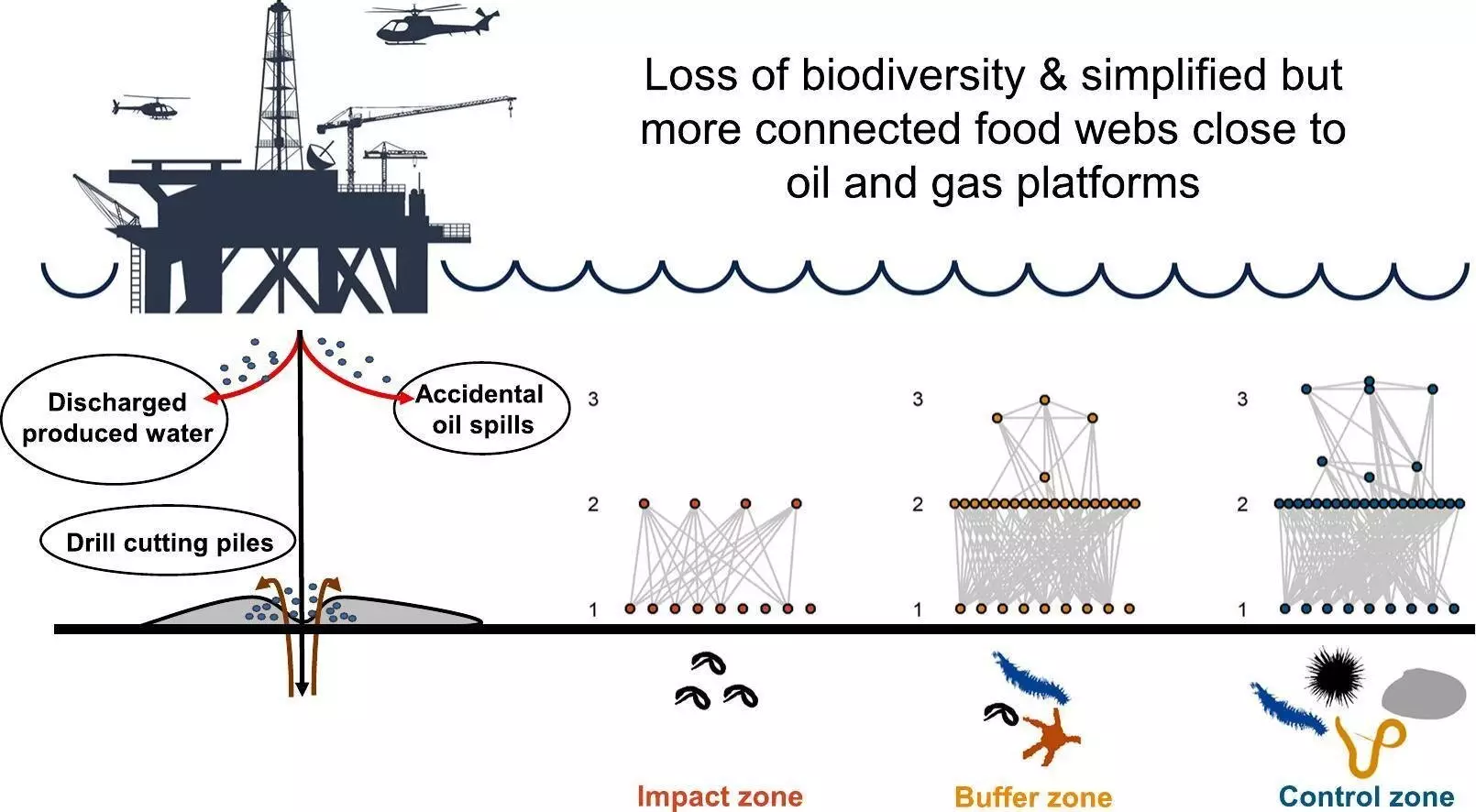Recent research has unveiled a startling ecological impact of oil and gas extraction in the North Sea, with pollution levels soaring to staggering heights in the vicinity of offshore platforms. A collaborative study conducted by the University of Essex, Natural History Museum, and the Center for Environment, Fisheries and Aquaculture Science (CEFAS) reveals that pollution can spike by over 10,000% within just 500 meters of extraction sites. This revelation is not merely a statistic; it signifies a profound and damaging ripple effect on marine biodiversity, with nearly a 30% decline in species observed near these platforms. It paints a grim picture of the long-term consequences of fossil fuel exploration in a time when the world should be pivoting towards sustainable energy solutions.
The Invasive Nature of Pollutants
Within this alarming framework, the study identified hydrocarbons that were present at levels up to 10,613% higher than those found in uncontaminated sites, along with a 455% increase in heavy metals such as lead, copper, and nickel. This accumulation of toxic substances has been ongoing for decades, creating legacy pollution issues that future generations will struggle to grapple with. The persistence of these contaminants not only hampers the immediate health of marine life but also disrupts the intricate networks that define ocean ecosystems. Such toxic exposures can serve as a death knell for a multitude of species, particularly those that are sensitive and slower to adapt to environmental changes.
Ecological Consequences and Food Web Simplification
The implications of this research extend beyond mere statistics; they touch upon the fabric of marine ecosystems. The study revealed that the delicate balance within food webs—the interconnected feeding relationships that sustain marine life—has been compromised. As a result, regions near oil and gas platforms exhibit simplified food webs, favoring smaller, more resilient species like worms while pushing larger predators such as starfish into decline. This shift indicates a distressed ecosystem buckling under the weight of pollution, which could lead to unforeseen consequences for the entire marine food chain. When larger predators disappear, the abundance of smaller organisms disrupts the natural order, potentially leading to population booms for certain species and subsequent ecological upheaval.
The Role of Researchers and Their Call to Action
The study, spearheaded by Ph.D. student Zelin Chen, underlines the critical importance of rigorous scientific research in unveiling the harsh realities of our approach to resource extraction. Chen’s examination of historical data across nine oil and gas platforms sheds light on a concerning trend that had been suspected but lacked concrete evidence until now. The research explicitly calls for heightened awareness and collaboration among industry professionals, governmental entities, and researchers. Dr. Eoin O’Gorman emphasizes the need for such alliances to guide decommissioning practices that ensure environmental protections are prioritized, particularly as many platforms approach their operational end-life.
Implications for Future Conservation Efforts
The findings add urgency to the discussion surrounding marine conservation. As the ocean is often regarded as one of our planet’s most vital natural resources—integral to climate regulation and global biodiversity—the call for collective action is more pressing than ever. Researchers like Dr. Natalie Hicks stress the necessity of a scientific-led approach to decommissioning platforms, advocating for practices that safeguard the marine environment. The implications of neglecting this responsibility are dire, not only for marine life but also for the health of our planet and future generations.
The Shift Towards Sustainable Solutions
In light of this research, the broader implications extend to the urgent need for a transition from fossil fuel dependency to renewable energy. The ecological fallout from current practices should serve as an unequivocal wake-up call for policymakers, industries, and the public alike. Our understanding of marine ecosystems must evolve, fostering a deeper commitment to preserving these delicate systems. It is essential that we strive not only to halt further degradation but also to actively restore damage done in the past. The dynamic nature of ocean ecosystems requires proactive stewardship, ensuring that all actions taken today resonate positively through to future generations.
The ocean is not just a backdrop to human activity; it is a living entity that deserves respect and protection. As we face the impending challenges posed by climate change, biodiversity loss, and pollution, it is our duty to reconsider our priorities and actively work towards a sustainable future. The time for action is now; the stakes are immeasurable.


Leave a Reply